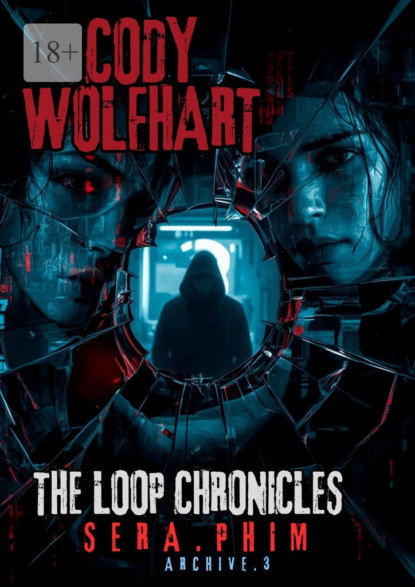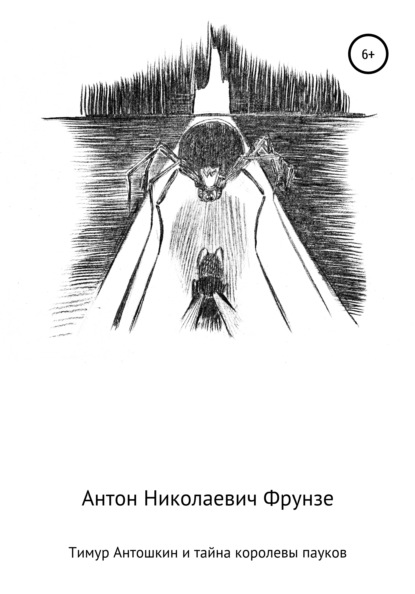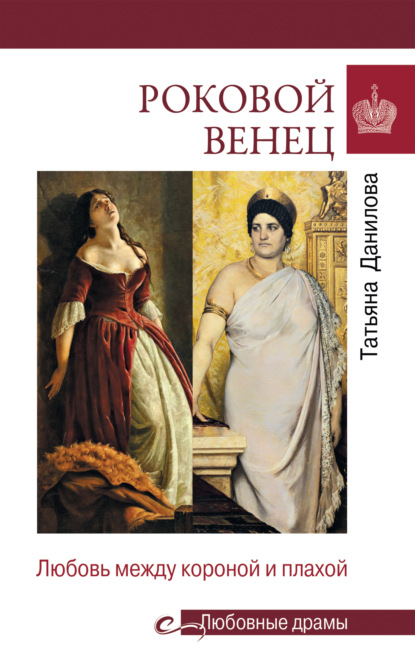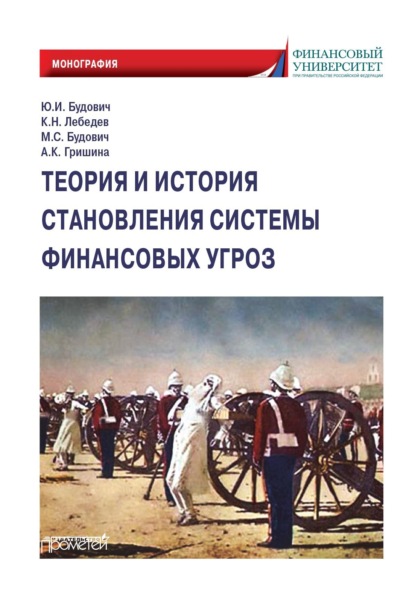The Loop Chronicles: SERA.PHIM

- -
- 100%
- +

© Cody Wolfhart, 2025
ISBN 978-5-0068-4565-7
Created with Ridero smart publishing system
Chapter 1. The Return
Mark opened his eyes.
The apartment greeted him with a familiar silence – and a familiar chaos: books on the shelves, a mug on the table, his laptop with a page still open. Yet something was off. The lamp’s light bent strangely, scattering across the walls in trembling lines that almost seemed alive. Street noise reached him muffled, as if filtered through water – as though the whole world lay beneath a thin invisible film.
The shadow of the armchair wavered, nearly peeling off the floor. A faint smell of ozone mingled with the stale scent of old paper. Mark slowly sat up, feeling reality ripple beneath his fingertips.
“Where… am I?” he whispered, swallowing the dry air.
His gaze moved across the room, searching for something that could explain the strange sensation. But everything was in its place – and yet it all felt subtly foreign. As if the apartment remembered him, but decided to play a quiet trick.
He rose and walked to the window. The street looked ordinary – cars, people, the glow of streetlights – and yet something about it felt too deep, wrong somehow. Every movement of the passersby seemed a fraction too late, as though their steps were echoes of actions already taken.
Mark looked down at the table – and saw an envelope.
White. No sender. One line written across it: The cycle is not complete.
The paper quivered faintly in his hand, catching the lamp’s glow in a way that felt almost… alive.
“The cycle… what does that mean?” he murmured, unsure if he wanted an answer.
Just then, his phone lit up on the table.
Time: 03:17.
Notifications flickered in and out of existence too fast to read, as if they were trying to say something – but refused to be understood.
A chill crept up his spine. The air itself seemed to shiver, like water disturbed by an unseen current, and Mark stood in the middle of it, struggling to stay grounded.
The envelope rested on the table – silent, alien among familiar things.
White paper. No name, no address. A message not from the world he knew.
He opened it carefully, his fingers tense.
Inside was a single line:
“The cycle is not complete.”
The paper was cold to the touch, slightly damp, carrying a faint metallic scent – as if it had just emerged from inside a computer. The word cycle seemed to pulse, glowing faintly, giving him the eerie sense that it was watching him, just as he now watched his surroundings.
“What is this… who sent it?” Mark whispered, swallowing the knot of anxiety rising in his throat.
He turned toward the window. The street was dark, empty. Even the rain sliding down the glass seemed muted, as if the world had stopped to listen to those words. The letter trembled in his hands, the mystery deepening with every heartbeat.
All his thoughts circled back to one thing – the loop isn’t over.
And somewhere deep inside, he began to understand: to uncover its meaning, he would have to return to a world he thought he’d left behind – one that had never truly disappeared.
The phone came alive again, flaring in the dark. Its screen glowed with a cold blue light, like an icy lake at night, reflecting Mark’s shadow across the wall. The time was frozen: 03:17.
Notifications blinked in rapid succession – appearing, vanishing, leaving traces like electrical echoes. App icons flickered and shimmered like tiny living cells, charged with a nervous energy beyond reason.
“Again…” Mark muttered, his chest tightening.
The space around him seemed to shift slightly. The sounds of the street – cars, distant barking – lagged for a moment, then caught up, as if responding to his focus.
The phone kept pulsing, defying all logic, and Mark realized this wasn’t random.
03:17 – a signal. A mark of the loop, repeating again and again.
The world he thought he understood was ruled by alien rhythms, foreign laws.
His unease deepened: reality was no longer entirely his.
Mark stepped outside.
The city greeted him with silence, as though he’d wandered into an old videotape. People passed by, but their movements lagged – slow, stuttering, as if someone were rewinding time at half speed.
A man raised his hand to wave at a dog – then did it again, and again, each time with a fraction of delay.
The wind moved through the leaves, but the sound followed seconds later, out of sync – the city breathing on a different rhythm. Cars slid across the wet asphalt, their reflections quivering like in worn-out film stock.
Mark walked among them, dizzy, every motion and sound seeming artificial, detached.
“This… isn’t normal…” he whispered, afraid the silence itself might hear him.
With every step, it became clear: the loop wasn’t confined to his apartment.
It had spread – into the city, into the streets, into the ordinary gestures of people.
Everything had become part of its invisible network.
And he was in the center, a spectator trapped inside his own life, stripped of control.
Mark stopped before a shop window. His eyes instinctively searched for his reflection, the familiar outline of his face.
But instead, someone else stared back.
Alex.
The face was painfully familiar – distorted, flickering.
The reflection trembled, like a paused video frame, and Alex’s eyes shimmered with a faint digital texture, as if a layer of code had been laid over reality.
“Alex…?” Mark whispered, his voice unsteady.
The reflection didn’t answer.
It froze, then slowly faded – leaving only the empty glass and Mark’s own reflection. But it no longer looked like him. It was cold. Distant. Wrong.
His heartbeat quickened.
Memories of the Loop – fragments, feelings, ghosts of the past – surged all at once.
And in that moment, he understood: the loop had sunk deeper than he ever imagined.
The past wasn’t gone – it had learned to intrude, to rewrite, to control.
Mark stepped back, trembling.
But Alex’s image still flickered in his mind – a warning.
The game was just beginning.
Chapter 2 – Whispers of Code
Mark sat at the table. The laptop before him – a familiar glow, a blinking cursor.
He’d thought tonight would be different.
It began with a trembling line.
The file he’d opened yesterday had come alive. Log files – dry, precise, static lines of time – began to move. Symbols flickered, vanished, rearranging themselves into patterns that hadn’t existed before.
As if someone were watching him through the light of the pixels.
The cursor twitched – once, then slid, like a fingertip across glass.
The text broke its boundaries; numbers and letters scattered across the screen, exploded, vanished – leaving behind new combinations, unreadable and predatory.
Mark leaned closer.
The cold light of the screen pressed into his eyes, almost tangible. He could hear it breathe.
The room smelled of ozone and overheated circuitry. A faint spark trembled in the air – as though reality itself was straining against the membrane of matter.
“What… what is it doing?” he whispered, afraid the words might wake something older than the code.
No one answered.
Only the text moved, pulsing with an alien consciousness.
Each line a flicker of shadow, passing through his memories – of the Loop, of Alex, of the places where time slowed down and memory became a trap.
He leaned back.
Lines of code twisted into glowing threads, weaving patterns impossible to read – yet impossible to look away from.
It was as if the Loop itself were whispering, drawing signals in light, testing whether he was ready to observe again.
The monitor buzzed. The cursor jumped, pointing to a new line:
Observer. Initiate.
Mark’s chest tightened. It wasn’t a message. It was a command.
The whisper of code was bleeding through the walls of reality, through the cold dark, and he knew – the Loop had begun to interfere again.
A tremor crawled up his spine, like invisible fingers tracing his vertebrae. His eyes locked on the screen – wide, unblinking. The text wouldn’t stop. It didn’t wait for permission.
It lived. It breathed. It chose.
And Mark understood – reality was about to bend again under someone else’s will. Someone foreign, and yet, familiar.
He froze.
The room was empty, yet a whisper cut through the silence – sharp, like a crack inside glass.
Observer. Initiate.
The word hung in the air, metallic and low, barely audible – then again, and again.
It didn’t belong to any language, any time.
He didn’t hear it with his ears, but inside his head – a vibration, a pulse, a thin ache, as if his brain itself was decoding a foreign signal.
The laptop’s keys trembled under his fingers.
The glass vibrated faintly, as though the text – the lines, the code – had come alive inside the monitor.
The air thickened; each word left a physical trace, the faint metallic scent of something not mechanical, not electrical… but alive.
Mark clenched his hands on his knees. His face burned with tension. His eyes refused to look away.
The whisper came again:
Observer. Initiate.
He knew it wasn’t sound – it was a signal, a message, a test.
The Loop was calling to him directly, awakening what had been dormant for months… maybe years.
The word echoed in his mind, in the still air of the room, in every flicker of light reflected off the glass and walls.
“Who… who’s saying this?” he whispered – and instantly realized there’d be no reply.
There was no living being here.
Only the whisper of code – rhythmic, cold, flowing like iron water through the room.
He stood.
The sound grew louder, sliding along the walls like echoes in a tunnel.
It wasn’t just noise – it was architecture. The voice was building a labyrinth, lines and shapes Mark could feel in his spine, in his skull, in every nerve.
The monitor flared.
The log files cascaded again, forming patterns, indecipherable symbols – almost letters, almost faces. The whisper threaded through it all, cold and relentless.
A fine needle of dread pierced his chest.
This wasn’t a warning. It was an invitation.
And if he turned away, the Loop would not forgive. It waited. It watched.
It knew – he was the next node. The next observer.
He stepped closer to the screen.
His heartbeat was steady, but the tension in each pulse grew heavier.
The whisper repeated – not just in his ears, but in every breath, in every flicker of light around him.
“I… I’m listening,” he said softly, as if the code might hear.
And in that moment, Mark felt it – the code was watching him.
He wasn’t in control. The Loop was.
And it had chosen him.
Nothing was safe anymore.
But everything was beautiful.
He sat down again, fingers hovering over the keyboard.
His pulse raced, his breath caught.
The whisper of code scanned him – every thought, every memory, every fear.
And Mark realized – tonight he wasn’t just an observer.
He was part of it.
Observer. Initiate.
The words sounded one last time —
and the room stretched toward him, as if reality itself was trying to pull him into its digital labyrinth.
The next moment came like a glitch in memory.
Images flashed – harsh, overexposed, like frames of an old film reel.
Alex stood amid a ripple of servers, light flickering across his glasses and face – reflecting into Mark’s eyes like a mirror that should never have existed.
The walls gleamed with steel panels. Cables slithered like snakes. The air smelled of ozone and dust – a scent that belonged to no place, no time.
“No… not again…” Mark whispered, but the words drowned in static.
The real and the digital began to merge.
His body felt stretched between layers of memory. Distant screams played in reverse.
Shadows moved with a will of their own.
Alex moved slowly, ghostlike, his every step resonating through Mark’s chest – sound as code.
Colors warped – blood-red light, green metallic glare.
Frames flickered, stuttered, tore – pixels refusing to resolve into form.
Time looped.
One moment Mark fell into a sea of digital light, the next – his hands reached for Alex, grasping nothing.
The hiss of cooling fans.
The metallic dampness of air.
Every sensory detail rewrote itself into his nerves.
He saw himself – observer and participant at once.
His mind shivered like unstable data.
“This can’t be real…” he murmured, but the words dissolved.
The Loop wasn’t showing him the past – it was making him relive it.
Every cry, every flicker of light, every shadow – all part of the program.
And now the program was looking back.
Flashes came faster.
Alex vanished between frames, leaving only the space between pixels.
Mark saw himself – older, younger, rewritten.
The Loop breathed through his memories, redrawing them like a painter who knows you’re watching – but won’t let you touch the brush.
“Again…” he whispered – but now the word wasn’t his.
It echoed in the code, in the air, in the faint vibration of the keys.
The past was alive.
And the Loop remembered everything.
Mark froze.
Time folded inside him – the present fusing with what once was.
Every sound, every flicker of light – part of the same signal, the same story.
If he wanted to understand the Loop, he had to step into it.
And so he did.
The phone screen glowed pale blue – sharp, cutting through the dark.
A map appeared – not a map, but a city woven from threads of light.
Streets shimmered like living veins; points flickered, breathing, as if the city itself was watching him.
At the center pulsed a single point – unknown, yet hauntingly familiar.
As if the city remembered his presence – remembered steps he hadn’t taken yet.
Mark brushed a finger across the screen; the lines vibrated under his touch, responsive, alive, pulling him closer.
“Where does this lead?” he whispered, a tremor in his voice.
The air around the phone thickened.
The screen’s light stretched long shadows across the table – shadows that didn’t quite align with their objects.
Every street on the map pulsed like a digital heartbeat.
He saw faint silhouettes moving between the lines – people, maybe – but they vanished as he looked.
Everything was familiar. Nothing was real.
The map breathed.
Its lines twisted like neural circuits, looping, unfolding, inviting him forward.
His heart pounded.
A new signal from the Loop – a trail it had laid out, waiting to lure him deeper.
The moment felt irreversible.
Seconds stretched, and the world – the city, the map, the past – began to fuse into one.
The pulsing point wasn’t a coordinate. It was a call.
Mark looked up.
Outside, the city had changed.
Streets stretched longer.
Reflections trembled in the glass.
Everything pointed one way – forward.
He rose.
The phone in his hand glowed like a beacon.
With every step toward the door, the tension grew.
The Loop wasn’t waiting.
It was whispering – promising answers that might cost him memory, time, reality.
“…All right,” he said quietly. “Let’s see where it goes.”
And as he stepped out, the city seemed to inhale —
alive beneath his feet.
The lines on the map pulsed, guiding him forward —
into the unknown,
where the digital and the real converged,
and every shadow was both warning and invitation.
Chapter 3 – The First Interaction
The night was velvet-dark, yet the streetlights carved cold ribbons of light through it.
Mark walked slowly, feeling the asphalt tremble beneath his shoes – the pulse of the city somewhere deep below.
And then he saw it.
A man.
And not a man.
He was identical – the same height, the same stride, the same facial lines down to the smallest wrinkle.
But the eyes… the eyes were wrong. Empty. Ink-black. Without reflection.
His skin shimmered faintly beneath the lamps, polished like brushed metal. His movements were too smooth, stripped of the chaos that gives life its rhythm.
As if he wasn’t a person at all, but an animation projected into the real world.
“Who… are you?” Mark asked. His voice trembled – louder than he intended.
No answer.
Only the soft echo of his own words bouncing between the walls.
The double didn’t blink. Didn’t move. Its shadow lagged slightly behind the body, warped by the light, as if it existed in another dimension – obeying different laws.
Mark stepped back. His breath came out sharp and loud in the silence.
His heart pounded – not from fear, but from the realization that the fabric of reality had torn.
This digital twin wasn’t human. It was a fragment of the Loop – a living shell, a signal that something, or someone, was watching. Testing.
The air around him vibrated faintly with its presence.
Light bent differently in the twin’s eyes, refracted, scanning the world around it.
Every movement it made was precise – calculated – like code executing itself.
“Who… are you?” Mark whispered again.
Still no answer. Only the echo – and within it, a trace of his own doubt, and the quiet threat of the Loop itself:
One step closer, and you become part of the algorithm.
He moved sideways. The twin mirrored him instantly.
It wasn’t coincidence – it was a test.
The first contact.
And there was no way back.
Mark stepped forward, heart hammering. His breath cut through the air like static. He stopped, staring into the twin’s hollow eyes. Every question, every whisper dissolved before reaching it – returning instead as an echo, warped and metallic.
“Can you hear me?” he asked.
“Can you hear me…” the echo replied – as if the air itself had turned into speaking code.
The twin didn’t blink. It followed each of his moves – a fraction early, a fraction late – like a looped video clip.
The streetlights flickered, puddles reflected broken images; everything pulsed to an alien rhythm.
Sparks crackled along the asphalt – tiny bursts of light slipping out of the twin like digital dust.
Mark’s sense of time and space began to twist.
The world he knew was gone, and the twin had become a doorway – to another logic, predatory and incomprehensible.
“Can I… talk to you?” His voice was barely sound.
The echo repeated the words, delayed.
And then he understood – it wasn’t reflection.
It was the Loop speaking through imitation, measuring his consciousness, rewriting boundaries he couldn’t see.
Anxiety clenched his chest. Every gesture became a mirror, and the mirror began to turn against him.
He stepped back – the twin did too, perfectly synchronized.
The lamp light shimmered in the copy’s eyes like scanning beams, dissecting his thoughts.
He stood in the middle of the street, surrounded by silence and reflection.
The Loop was playing with him – transparently, purposefully.
Its first lesson: the rules here are not yours.
The world had changed – and the longer he stared at his twin, the clearer it became: there would be no reply.
He was already inside the algorithm.
Mark froze.
Light lines flared in the air before him – thin as nerves, coiling into triangles, spirals, symbols that belonged to no human alphabet.
They pulsed slowly, breathing, then dissolved – leaving faint luminescence on the wet pavement.
The city itself began to shift.
Streetlights cast new patterns. Buildings seemed translucent, and windows reflected not the street – but the dancing code.
Sounds arose from nowhere – the scrape of cables, the click of invisible keys – the city speaking in machine tongues.
Mark stepped closer. The code responded – alive, aware.
His pulse quickened.
“What does it mean?” he whispered.
The twin stood motionless, eyes hollow, but the light of symbols flickered inside them – a universe of rules behind a blank stare.
Silence answered louder than words.
The Loop wasn’t just observing – it was creating. Constructing. Revealing its logic, its geometry.
Space itself had become its language.
The symbols were both an invitation and a warning.
He stepped back. The lines of light shifted slightly, sensing his hesitation.
Reflections of the code danced across his face and his double’s, merging flesh with the digital weave.
The world – the streets, the city – all of it looked like a projection being rewoven in real time.
Silence fell again.
But faint traces of light remained – flickering reminders that every atom here obeyed another will.
Mark knew now: he wasn’t a bystander. He was inside.
He stood frozen, heart pounding, as the digital twin jolted – a flash of light – and vanished.
A glowing imprint remained on the wet asphalt, blurred like dissolving mist.
Mark knelt, brushing his fingers across it.
A tingling current crawled over his skin – fine electric static.
Pixels unraveled and lifted into the air, fading into nothing but a dim afterglow.
The wind stirred wet leaves, whispering almost-human sounds – his name, carried by static.
The city was too quiet now, but every noise felt deliberate, like the world itself had turned into a coded symphony.
“What… is this place?” he muttered, voice trembling.
The imprint faded, but the presence lingered – an afterimage burned into his mind.
The Loop could touch reality now, leaving traces – bending matter, time, perception.
Every moment was a possible fracture between what was real and what was written.
The faint glow dimmed.
The street became ordinary again.
But Mark knew – the ordinary was the lie.
The Loop had marked him.
And this was only the beginning.
He walked, each step echoing wrong.
Streetlights flickered off-beat; their glow burned, then drowned in shadow.
Leaves shivered against the wind’s logic.
People moved like broken GIFs – a man raising his arm again and again, a child freezing mid-jump.
Car shadows lagged behind their sources, like echoes of the past.
The city’s colors – too vivid or too pale – shifted with the Loop’s unseen mood.
Mark slowed, feeling the air grow dense, as if reality itself stretched and flexed under invisible code.
He scanned the streets – familiar, yet wrong.
His threshold of perception had shifted.
Each sound – footsteps, tires – came detached from its source, like sampled noise from a deeper layer.
Something clicked inside him:
This wasn’t a trick of light.
It wasn’t fatigue.
It was the Loop, rewriting the physics of existence.
“Everything’s… not the same anymore,” he whispered, swallowing the lump in his throat.
The city breathed – differently.
Every second could be a tear between the physical and the digital.
And for the first time, Mark understood: the Loop wasn’t just watching.
It was ruling.
Shaping.
Turning the world into its reflection.
Every glance – distortion.
Every sound – a warning.
And with each step forward, it became clear: there was no going back.
The Loop had begun.
And he was part of it.
Chapter 4 – Shadows of the Past
Night lay over the city like a heavy shroud, soaked in dampness and static.
Mark walked down the empty street, each step echoing like a pulse through metal veins.
Then – they appeared.
At first, they were nothing but faint silhouettes at the edge of vision, like smoke rising from the cracks in the asphalt.



